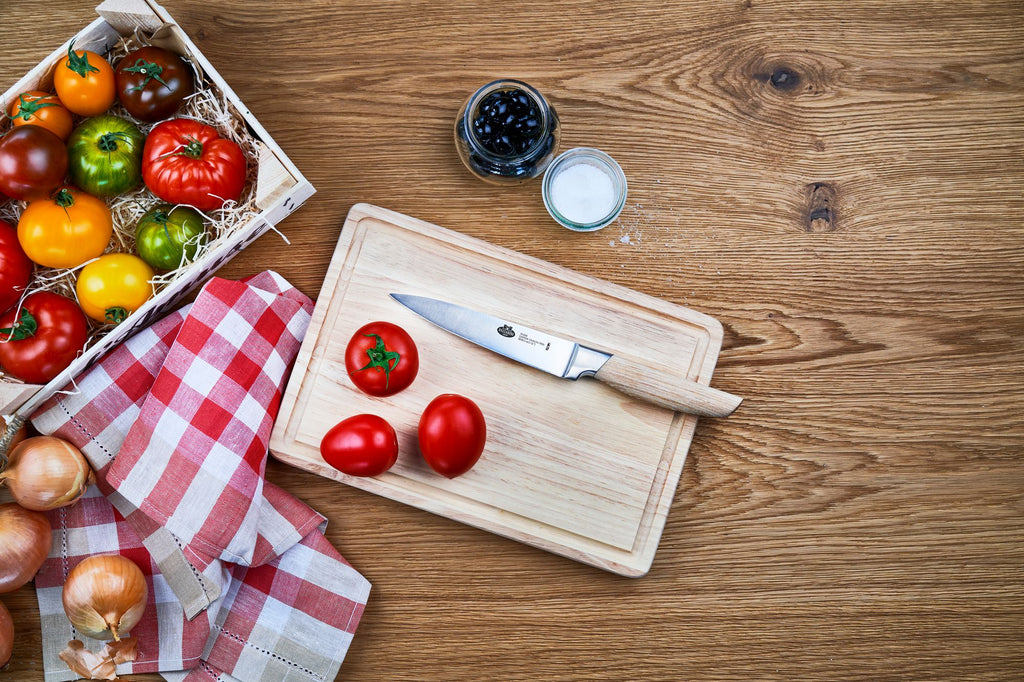In the realm of culinary arts, the choice of tools can significantly impact the quality of the dishes prepared. Among these tools, knives hold a special place in the heart of every chef. Today, we delve into German knife reviews by chefs to understand why these blades are a staple in professional kitchens worldwide.

The Legacy of German Knives
Germany has a longstanding tradition of crafting some of the world's finest knives. Cities like Solingen, often referred to as the 'City of Blades,' have been at the forefront of knife manufacturing for centuries. German knives are renowned for their durability, precision, and balance. This reputation is not just hearsay; chefs around the globe have consistently vouched for the superior quality of these blades.
Chefs like Thomas Keller and Gordon Ramsay have often expressed their preference for German knives, citing their unparalleled performance in tasks ranging from delicate vegetable chopping to robust meat cutting. The secret behind this performance lies in the meticulous craftsmanship and high-quality materials used.
What Chefs Look for in a German Knife
When it comes to German knife reviews by chefs, several factors come into play. Firstly, the weight and balance of the knife are crucial. German knives are typically heavier than their Japanese counterparts, providing a sense of stability and control. This makes them ideal for tasks that require precision and power.
Another important aspect is the blade's edge. German knives are usually crafted from high-carbon stainless steel, ensuring longevity and resistance to corrosion. The edge is often ground at a 20-degree angle, striking a perfect balance between sharpness and durability. For more insights into blade edge types, you can visit this detailed explanation on blade edges.
Popular German Knife Brands Recommended by Chefs
Several German brands have earned the trust of chefs worldwide. Wsthof and Zwilling J.A. Henckels are among the most celebrated names. These brands are known for their rigorous quality control and innovation in knife production.
Wsthof, for instance, is famous for its Classic line, which offers a wide range of knives suitable for various culinary tasks. On the other hand, Zwilling J.A. Henckels is acclaimed for its Four Star line, which combines traditional craftsmanship with modern technology. To learn more about the care and use of these knives, visit Zwilling's guide on knife care.
How to Choose the Right German Knife for Your Needs
Choosing the right German knife can be daunting, given the plethora of options available. However, by focusing on your specific needs, you can narrow down your choices. For instance, if you're looking for a versatile knife for everyday use, a chef's knife from either Wsthof or Zwilling would be ideal.
For those interested in specialized tasks, such as fileting fish or carving meats, consider brands that offer a range of specialty knives. Remember, the key is to find a knife that feels comfortable in your hand and suits your cooking style. For a detailed understanding of different knife techniques, check out this guide on cutting techniques.
Maintaining Your German Knife
Proper maintenance is essential to ensure the longevity of your German knife. Regular honing and occasional sharpening are necessary to maintain the edge. It's also crucial to hand wash and dry your knives immediately after use to prevent rust and corrosion. For sharpening, consider investing in a quality sharpening stone or a professional sharpening service. You can explore some of the best sharpening stones here.
Conclusion
In summary, German knife reviews by chefs highlight the exceptional quality and performance of these blades. Whether you're a seasoned chef or a culinary enthusiast, investing in a German knife can significantly enhance your cooking experience. As you explore your options, remember to consider factors like weight, balance, and blade material to find the perfect fit for your kitchen needs.

FAQs
Are German knives better than Japanese knives?
Both German and Japanese knives have their unique advantages. German knives are typically heavier and more durable, while Japanese knives are lighter and sharper. The choice depends on personal preference and the specific tasks you're performing.
How often should I sharpen my German knife?
It's recommended to hone your knife regularly and sharpen it every few months, depending on usage. Regular maintenance ensures the longevity and performance of the blade.
Can I put my German knives in the dishwasher?
No, it's best to hand wash and dry your German knives immediately after use to prevent damage and maintain their quality.


























